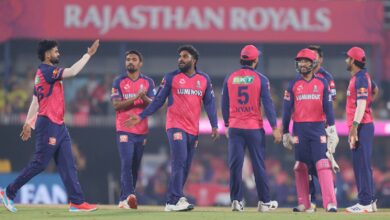BCCI vs Lodha Committee: Is the SC-appointed panel a friend or foe of Indian cricket?

On Tuesday, one read the news that the ongoing India vs New Zealand series may be abruptly cancelled as the Supreme Court-initiated Lodha Committee has directed banks to freeze the Board of Cricket Control of India (BCCI) accounts. As one writes this, it is still not clear whether the third Test match, scheduled to be staged at Indore from 8 October, is on or not, even though the Lodha Committee has given some clarification that it has not asked any bank to freeze the accounts.
There can be no two opinions among all those who love Indian cricket on the stipulation that there has to be transparency and accountability on the part of those who run or manage the game in the country. Since this body happens to the BCCI, its officials must be bound by the principles of transparency and accountability, even though the BCCI is a private body, registered under Tamil Nadu Societies Registration Act. And if these principles are going to be enforced as per the recommendations of the Supreme Court-appointed Lodha Committee, then there is the added bonus of the judicial sanctity behind them.
However, the problem arises if in the name of transparency and accountability, the recommendations of the Lodha Committee are too overweening. In fact, these are so over-reaching in their implications that instead of reforming and cleaning the game of evil influences, the game is going to be debilitated in the process.
Notwithstanding the “ills” that the BCCI is associated with, the fact remains that it is this BCCI that has made India the super power of the world cricket. It is under this BCCI that Indian cricketers are among the highest paid in the world today; gone are those days in the last century when the BCCI could not afford to keep the players in decent hotels while travelling, not to talk of paying them decent remunerations. It is under this BCCI that cricket is among very few games in the country that brings the country honour and victories. India is currently the number one side in Tests, number two in in T20 and fourth in One Day Internationals. But the Lodha Committee’s recommendations are so frightening that the greats in the game like Sunil Gavaskar and Kapil Dev have expressed serious concerns. The fear psychosis is such that talented and experienced cricketers are not applying for the highly lucrative posts of the national selectors.
One can understand when the Lodha Committee debars ministers from occupying the posts in the management of cricket. One can understand when it talks of the involvement of the Controller Auditor General (CAG) representatives in the auditing of the accounts of the world’s richest cricket body. One can understand when it debars top officials for having a third consecutive term.
However, one does not understand when the Lodha Committee wants to limit the revenue of the BCCI by creating obstacles in the process of advertisements (and sponsors) and their terms of engagement. One cannot understand when it equates the cricket associations in Mumbai or Delhi with the ones in Tripura or Uttarakhand. Once cannot understand how under the plea of controlling the role of the government of the day, the Lodha Committee relegates Railways (a team that has often performed well in the annual Ranji Trophy, the country’s topmost domestic competition) to be an Associate member. And one cannot understand how the Lodha Committee reached the conclusion that for a large country like India, three national selectors are enough instead of the present five. All these questions, in my considered view, have nothing much to do with the probity and accountability of the BCCI, the purpose for which the panel was essentially set up for.
With due respect to the Lodha Committee, it must be said that in the name of controlling politicians (in the management of the cricket), it is wrongly trying to take politics away from the cricket as a sport. Politics in sports is not necessarily same as politicians in sports. As regards politics and sports, their relationship is interminable. Sports have always been instruments of politics, be it at local or regional or national or international level. Sports in this case become synonymous with the honour or policy of a town or the province or the country. This explains why India and Pakistan are not playing cricket. This explains why upset over Russia’s policy towards Ukraine, many Western countries have warned that their teams will stay away from the 2018 FIFA World Cup, to be held in 11 Russian cities. This also explains why during the Cold War, the USA-led Block had boycotted the Moscow Olympics (1980) and the then Soviet Union-led group had boycotted Los Angeles Olympics (1984).
A corollary of the phenomenon of sports being instruments of politics also explains how and why world class stadiums or other sports infrastructures have come about with the State-support. Without the generous grants from the government of the day, Delhi, for instance, would not have able to host the Asian Games in 1982 and Commonwealth Games in 2010. The same is the case all over the world. The consequent corruption is a different story.






